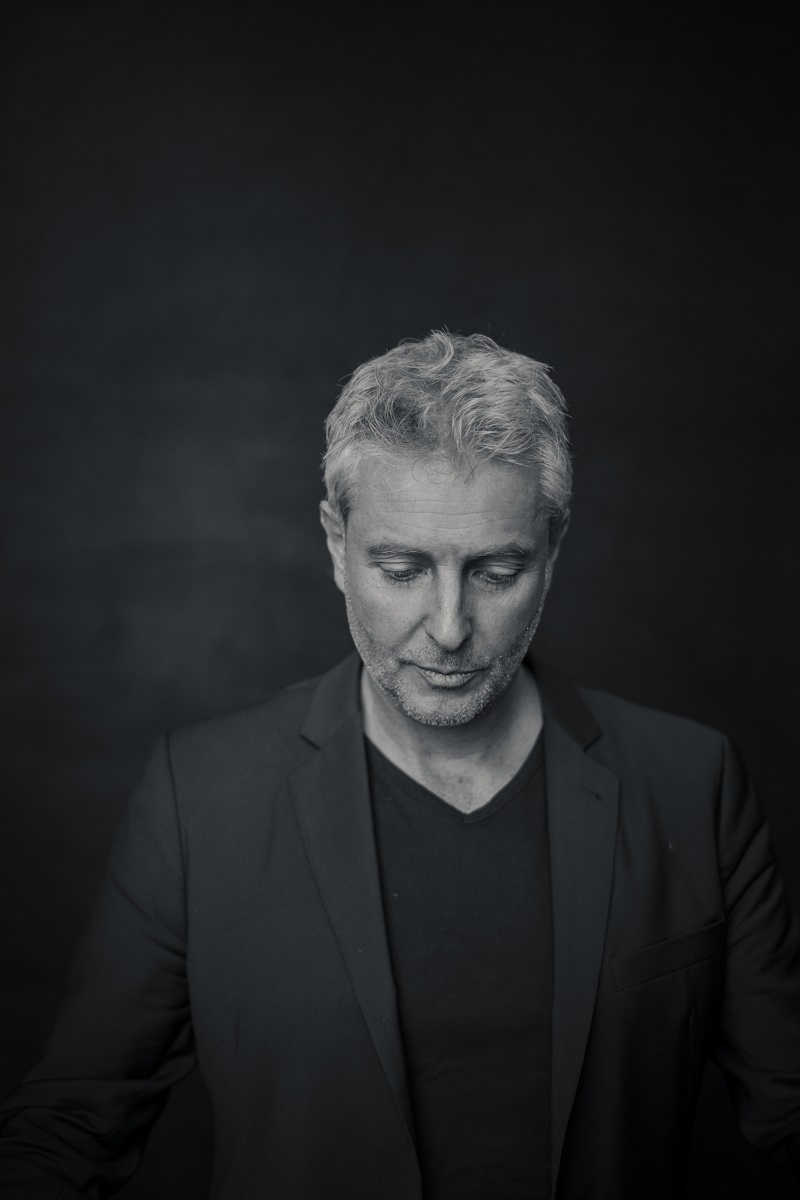SOČR, Liebreich & Hadelich
Programme
- César Franck: Les Éolides
- Ludwig van Beethoven: Violin Concerto in D major Op. 61
- Witold Lutosławski: Concerto for Orchestra
Performers
- Prague Radio Symphony Orchestra
- Alexander Liebreich - conductor
- Augustin Hadelich - violin
Price
Expected end of the event 22.00
Alexander Liebreich – Chiefconductor of the Prague Radio Symphony Orchestra
A fundamental truth about our existence
“I am very excited to perform for the first time at the Prague Spring festival!”, stated Augustin Hadelich, one of the world’s most sought-after violinists, speaking of his forthcoming appearance at the event. The concert programme, for which he teams up with the Prague Radio Symphony Orchestra under Chief Conductor Alexander Liebreich, is not only appealing from the audience’s point of view, but it is also sophisticated in terms of the music itself. It presents works from three different periods – Classicism, Romanticism and the 20th century – Ludwig van Beethoven’s Violin Concerto, the rarely performed symphonic poem Les Éolides by César Franck, the 200th anniversary of whose birth we mark in 2022, and a masterpiece from Polish classic Witold Lutosławski’s folklore period. “The Beethoven Violin Concerto is one of the greatest works ever written for the violin; I have been playing it since I was 8 years old,” says Hadelich. “Every time I play the slow movement I marvel at how perfect, how simple, intimate, and human it is. Perhaps it gives us – if just for a moment – an insight into some deep, fundamental truth about our existence, a glimpse of what lies beyond,” he adds. It’s also worth mentioning that, during his recent tenure as Chief Conductor of the Polish National Radio Symphony Orchestra in Katowice, Alexander Liebreich made acclaimed recordings of several works by Lutosławski, among them the Concerto for Orchestra. We certainly have a treat in store.
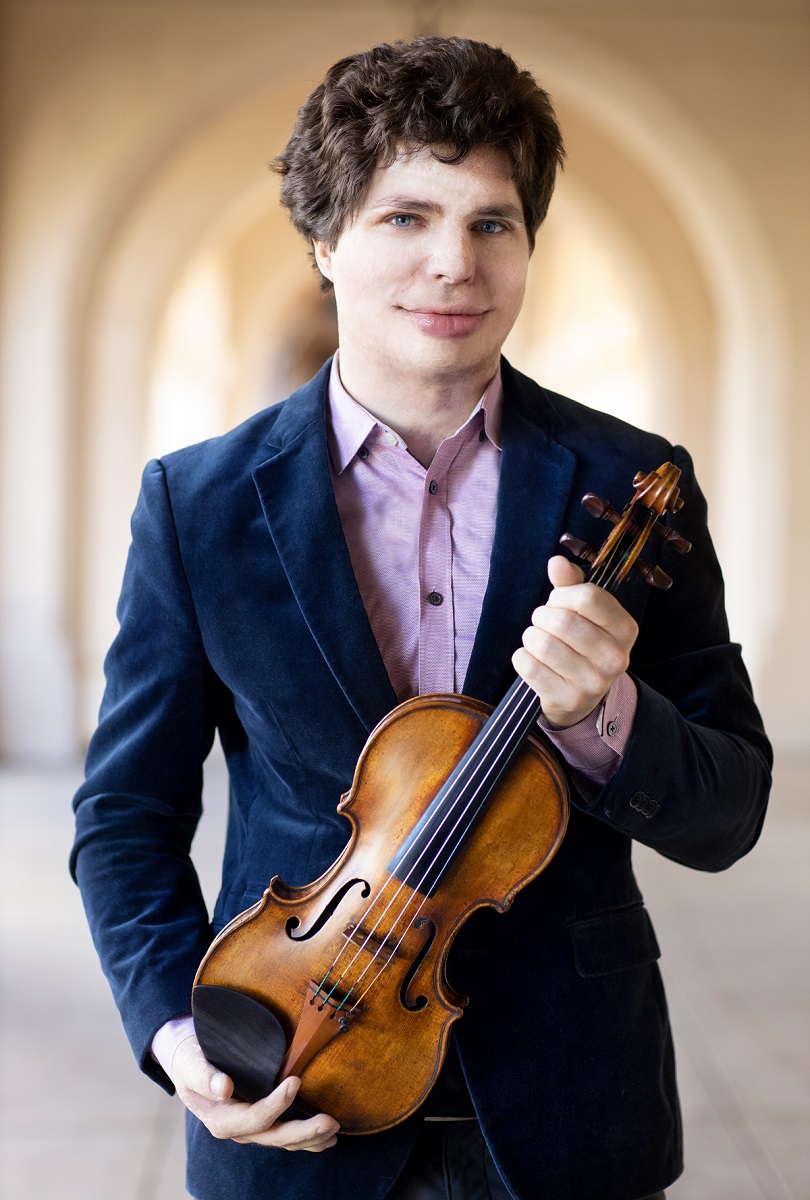
Successful voyage
César Franck (1822–1890), a pupil of Antonín Rejcha, wrote music for a period of nine years in his youth; then he suddenly stopped and was silent as a composer for almost a quarter of a century; it wasn’t until he had reached a mature age that Franck – a Belgian native – began to produce works which were important for the history of French music, to the same extent that Smetana’s oeuvre has been significant in the Czech environment. Franck was pioneering in his endeavours; together with his colleagues Camille Saint-Saëns and Gabriel Fauré, co-founders of the Société nationale de musique, he cultivated the phenomenon of ars gallica, based on classical foundations. Apart from organ and chamber music, Franck became celebrated particularly for his only symphony, the D minor, which he wrote towards the end of his life and which he conceived as an expression of the struggle for man’s belief in his moral greatness; it was also meant to provide one of the most momentous and most complex “answers” to the question “Must it be?” posed in Beethoven’s last quartet. A similar humanistic message also underlies Franck’s symphonic poems which, regrettably, continue to be overlooked by conductors and orchestras alike. Les Éolides (Aeolids) from 1876, inspired by the poem of the same name by the French author Leconte de Lisle, blends a classical motif from Homer’s Odyssey with immediate impressions from nature; the gentle breeze (Aeolids) calming the tempestuous waves for a successful voyage is, however, primarily a symbol of hope for the prosperous future of mankind.
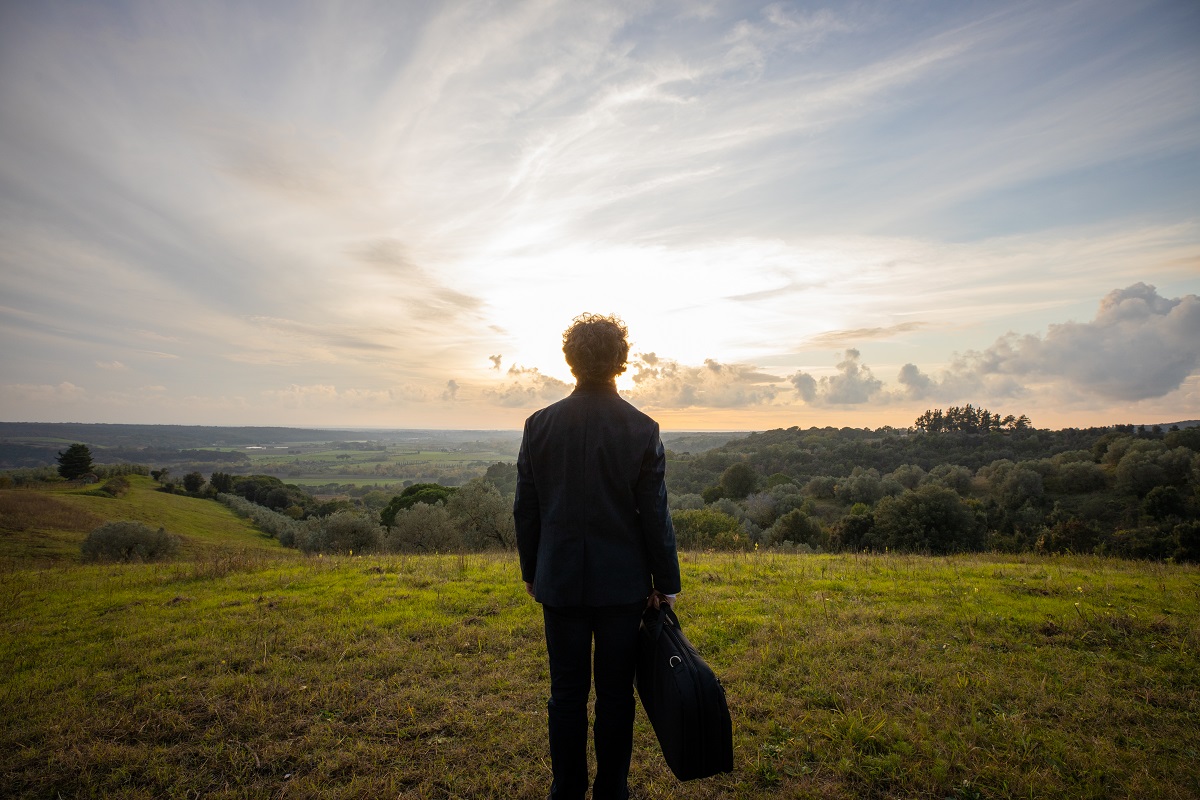
Rousing ideals
Violin Concerto in D major by Ludwig van Beethoven (1770–1827) emerged in the atmosphere of the composer’s heroic period; it is filled with fervour and rousing ideals like other works Beethoven wrote at that time. Even so, the notion of “fate knocking at the door” familiar from his Fifth Symphony is apparent here as well, and this right at the start in the introductory timpani motif. The premiere of the work, which took place on 23 December 1806 at the Theater an der Wien, did not go well at all. The composer was still finishing the concerto at the last minute and he handed out the parts just before it was due to be performed. It has even been said that the soloist Franz Clement had to pause for a while between the first two movements in order to read through the final Rondo. The concerto was little performed after that, practically forgotten for four decades. It was revived on the concert podium by Joseph Joachim, then twelve years of age, who performed the piece accompanied by the London Philharmonic Society orchestra. “It took many years and much effort on the part of violinist Joseph Joachim, who tirelessly programmed the piece despite frequent objections from orchestras and audiences, for the work to finally find its place in the repertoire,” says Augustin Hadelich. “As violin technique developed over time, its challenges became easier to master and it is now one of the best loved and most frequently performed works for the violin,” he adds.
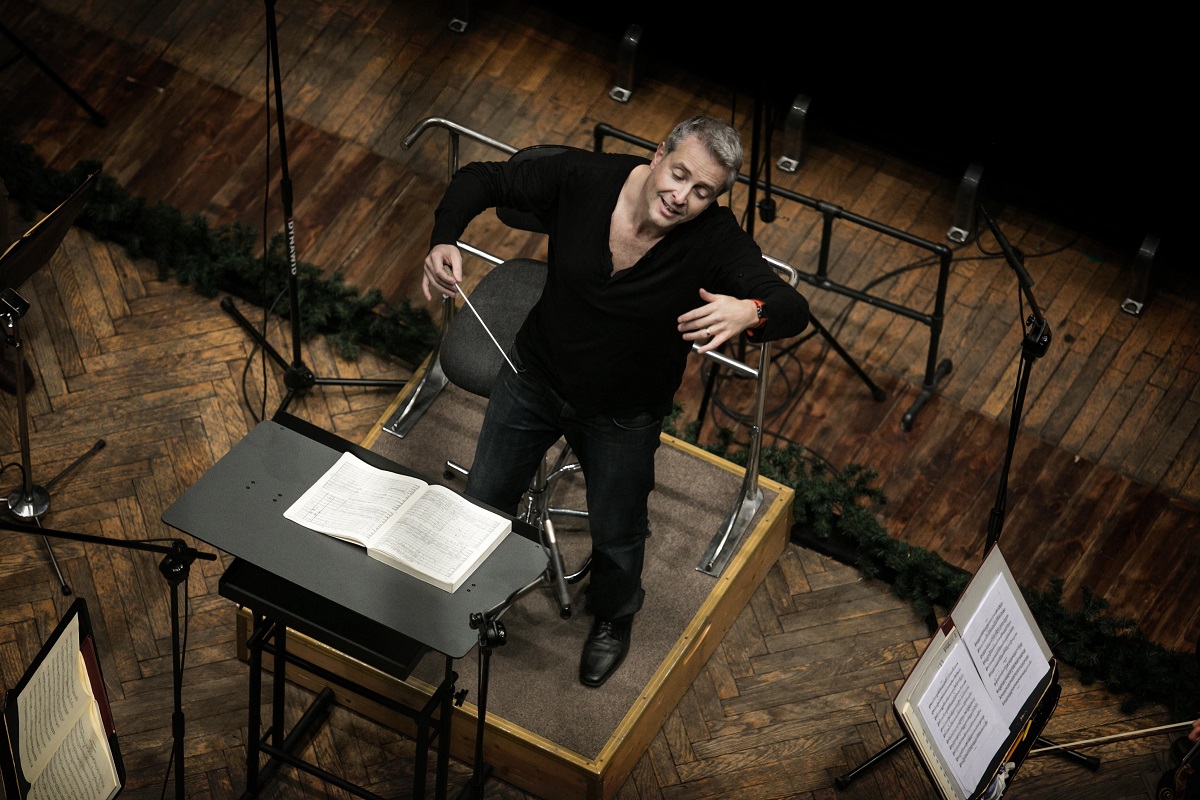
Triumphal tour
In 1950 Chief Conductor of the Warsaw Philharmonic Witold Rowicki called upon his friend Witold Lutosławski (1913–1994) to write a work which would represent the resurrected orchestra, stricken during the war by the loss of half its members. It was to have a tangible Polish character and was to give the individual players and sections of what was essentially a newly formed ensemble an opportunity to demonstrate their skills and musicianship. Four years later Lutosławski submitted the score of a work which, to this day, is one of his most rewarding. Since he was at that time in the midst of a folkloric period inspired by both the humble and, at the same time, modern approaches to folk music manifested in Karol Szymanowski and Béla Bartók, lending Concerto for Orchestra a Polish complexion did not pose a problem for him. In his instrumentation he was adept at drawing on his experience to date and he projected into the work’s structure – naturally from the standpoint of a composer from the 20th century – a Baroque way of thinking, which is evident from the titles of the movements themselves:: Intrada, Capriccio notturno e arioso and Passacaglia, toccata e corale. The premiere was held in Warsaw on 26 November 1954, conducted by Rowicki. The work was also performed the following year on the occasion of the reopening of the reconstructed Warsaw Philharmonic building, before it embarked on a triumphal tour of European countries, which included a successful debut performance of the piece at the Prague Spring in 1957 involving the Prague Symphony Orchestra conducted by Václav Smetáček.
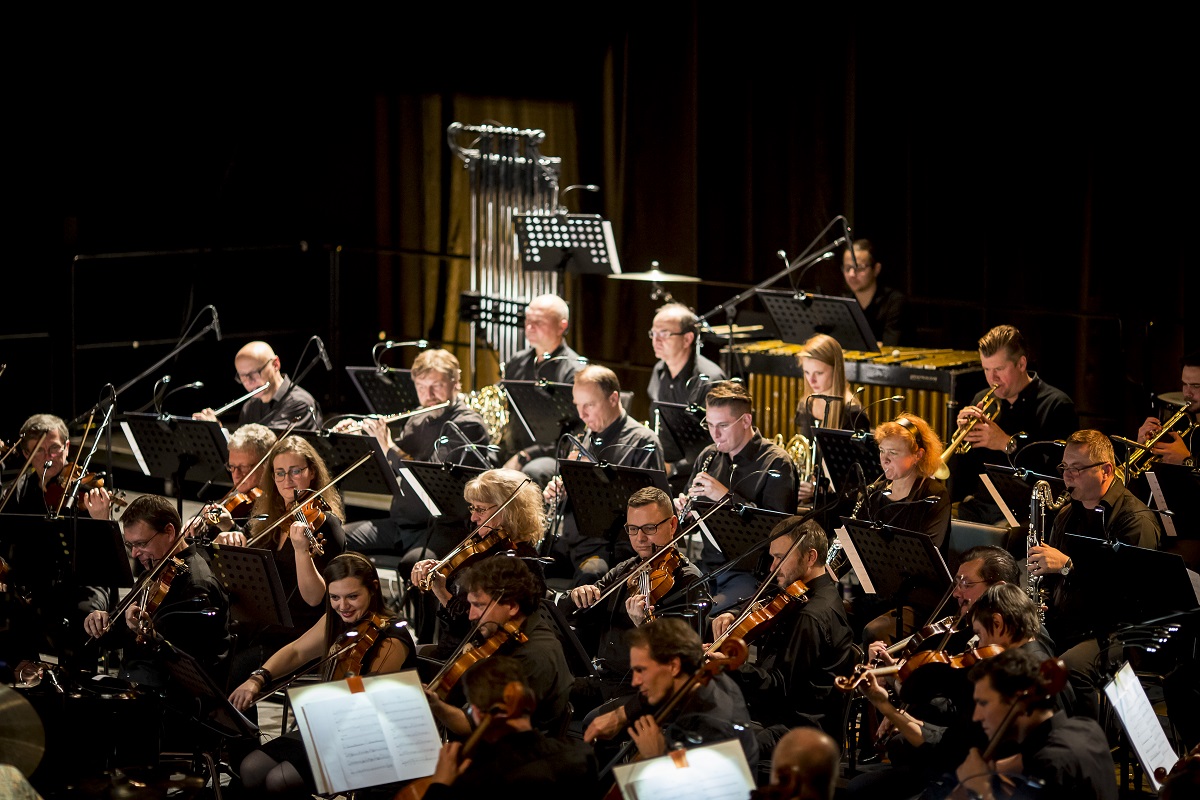
Silky-smooth sensitivity
“The German-American violinist Augustin Hadelich has a breath-taking technique. It is difficult to decide what is more impressive, the high-performance sport of his left hand […] or the bow hand, which keeps both resolute energy and silky-smooth sensitivity in perfect balance,” stated Bavarian radio station BR-Klassik. The Italian-born son of German parents and graduate of the Juilliard School having studied under Joel Smirnoff, he began his stellar career after winning the International Violin Competition in Indianapolis (2006).
He has won several awards, among them a Grammy in 2016 for his recording of Henri Dutilleux’s violin concerto L’arbre des songes. He recorded CDs for Warner Classics containing Paganini’s 24 Caprices (2018) and the violin concertos of Brahms and Ligeti (2019); on the album Bohemian Tales (2020), nominated for a Grammy, he joined the Bavarian Radio Symphony Orchestra under conductor Jakub Hrůša in a performance of Dvořák’s Violin Concerto in A minor and recorded chamber pieces by Dvořák and Janáček together with pianist Charles Owen. For other labels he recorded Tchaikovsky’s Violin Concerto in D major and Lalo’s Symphonie espagnole (LPO 2017), and Sibelius’s Violin Concerto in D minor and Concentric Paths by Thomas Adès (AVIE 2014).
Hadelich has worked with the majority of the principal orchestras in the United States and Europe, including the Concertgebouw Amsterdam, with whom he presented Jean Sibelius’s Violin Concerto. He gave performances of Beethoven’s concerto with the Boston Symphony Orchestra under Music Director Andris Nelsons, and with the Los Angeles Philharmonic under Edo de Waart. He plays on a violin crafted by the Cremonese violin maker Giuseppe Guarneri del Gesù from 1744. Highlights of his current concert season include his debut with the Berlin Philharmonic, who will accompany him in Sergei Prokofiev’s Violin Concerto No. 2, and the premiere of a violin concerto written expressly for him by Irish composer Donnacha Dennehy.
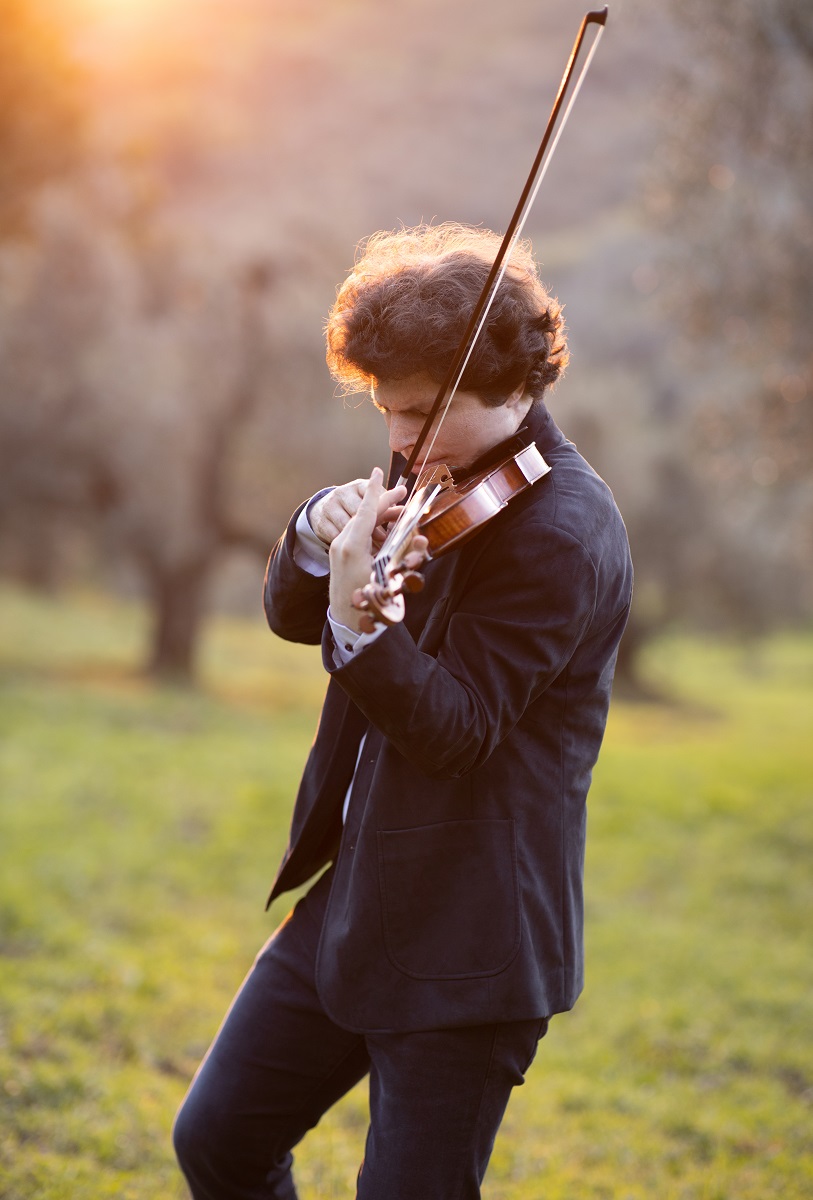
The Prague Radio Symphony Orchestra (SOČR) is one of the major orchestras of the Czech Republic. German conductor Alexander Liebreich has occupied the post of Chief Conductor and Artistic Director since the 2018/19 season, while Petr Popelka will head the ensemble from the 2022/2023 season onwards. Over the last few years the orchestra has worked with leading Czech and foreign conductors (e.g. Tomáš Netopil, Jakub Hrůša, Stefan Asbury, John Axelrod, Ion Marin, Michał Nesterowicz and Wayne Marshall) and soloists (Krystian Zimerman, Steven Isserlis, Christian Lindberg, Renée Fleming, Elīna Garanča, Asmik Grigorian and Jonas Kaufmann). SOČR regularly commissions and presents works by prominent contemporary Czech composers such as Pavel Zemek Novák, Jan Ryant Dřízal, Ondřej Štochl, Miroslav Srnka and Jiří Kadeřábek. The orchestra has made numerous impressive recordings in recent years, among them a Janáček trilogy with conductor Tomáš Netopil, the first complete set of Miloslav Kabeláč’s eight symphonies with Marko Ivanović, or recordings of all the piano concertos by Bohuslav Martinů.
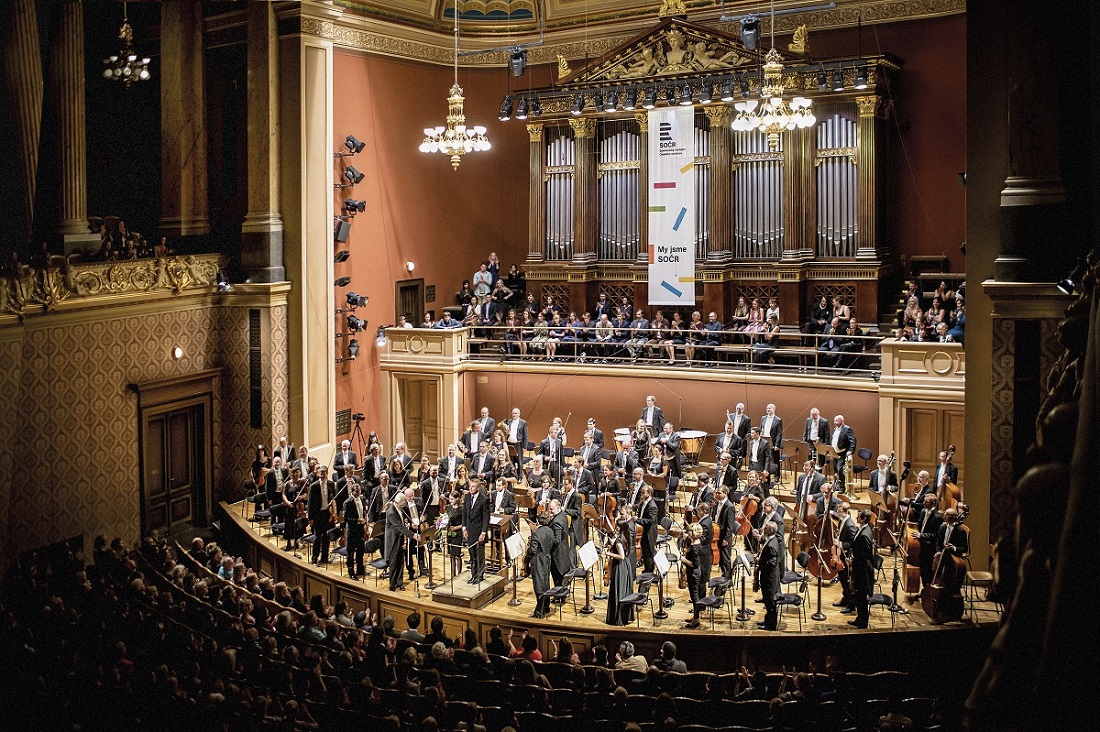
Under the baton of the chief conductor
Alexander Liebreich (1968) was appointed Chief Conductor and Artistic Director of the Prague Radio Symphony Orchestra at the start of the 2018/2019 season; from the 2022/2023 season he will head the Orquestra de València and he will also act as artistic adviser at the Palau de la Música in the same city. He also appears variously as a guest conductor, invited to such orchestras as the philharmonics in Munich, Dresden, Luxembourg, Osaka and Auckland, the radio orchestras in Berlin, Stuttgart, Hannover and Munich, the BBC Symphony, the NHK and the Concertgebouw in Amsterdam, among others.
He regularly collaborates with leading soloists – Lisa Batiashvili, Claron McFadden, Frank Peter Zimmermann, Maxim Vengerov, Gautier Capuçon and Leila Josefowicz – and has conducted at prestigious venues and festivals all over the world. He has also been involved in opera productions, notably in collaboration with director Hans Neuenfels at the Frankfurt Opera. From 2011 to 2014 he was the first European Artistic Director of the Tongyeong International Music Festival in South Korea, to which he invited prominent composers from East and West (Heiner Goebbels, Beat Furrer, Unsuk Chin, Toshio Hosokawa etc.).
In the period 2006–2016 he worked as Artistic Director and Principal Conductor of the Munich Chamber Orchestra, with whom he recorded several CDs for prestigious labels (Deutsche Grammophon, Sony Classics, ECM), including Requiem by Tigran Mansurian, which was nominated for a Grammy and won an International Classical Music Award. Involved in the commission of the work, the conductor gave its highly successful Czech premiere in the presence of the composer, conducting the Brno Philharmonic and the Czech Ensemble Baroque Choir. “The performance of Mansurian’s Requiem was superb,” wrote Boris Klepal for aktualne.cz. “The well-deserved standing ovation from the packed hall was not only a sign of respect for the composer in attendance and for the performers, but also an expression of admiration for one of the major highlights of the Brno Philharmonic’s 64th concert season – perhaps the most profound,” wrote Jiří Čevela for the Opera Plus website.
In the years 2012–2019 Liebreich was the first foreign artist to be appointed as Chief Conductor of the Polish National Radio Symphony Orchestra in Katowice (NOSPR). In October 2014 he conducted this orchestra, the Bavarian Radio Choir and pianist Krystian Zimerman at the gala inauguration of the new Katowice concert hall; for this venue he subsequently acted as artistic director of the Kultura Natura festival in the years 2015-2018.
He has recorded three CDs with NOSPR featuring works by Szymanowski and Lutosławski. The first of these, released in 2015, also contains Concerto for Orchestra, while the third CD won the 2017 International Classical Music Award. “This exceptional recording is distinguished by the powerful and expert conducting of Alexander Liebreich” was the official comment from the judges. In the period 2018–2020 Liebreich was Artistic Director of the Richard Strauss Festival in Garmisch-Partenkirchen; he was also elected Chairman of the Richard Strauss Society.
